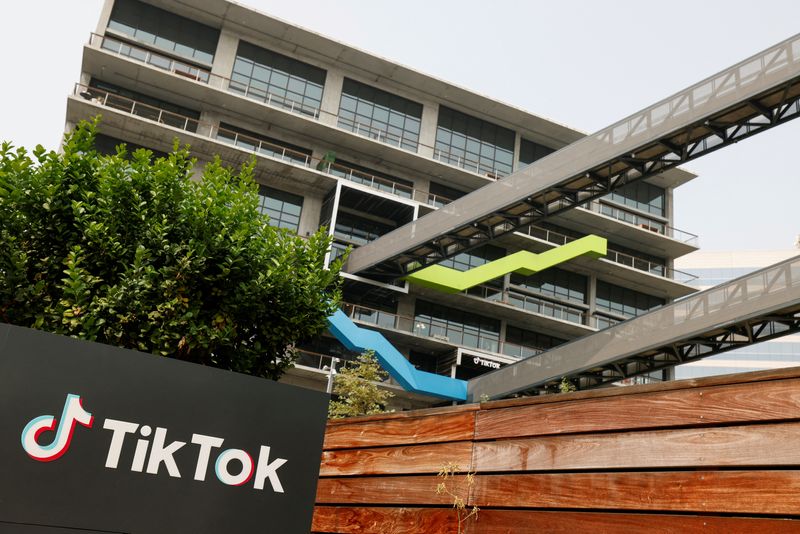By Mike Scarcella
(Reuters) - U.S. President Donald Trump's executive order to restore access to TikTok has created a thicket of new legal questions for the short-video platform, along with new tensions between the White House, members of Congress who want the platform banned, and tech companies caught in the middle.
Legal experts said despite Trump's order, service providers and app distributors such as Google (NASDAQ:GOOGL) and Apple (NASDAQ:AAPL) still face major uncertainty and potential massive financial liability for defying a law that banned TikTok in the United States unless Chinese parent ByteDance divested the company by Jan. 19.
TikTok remained unavailable to download on Apple and Android devices in the United States early Tuesday afternoon, after Trump signed an executive order on Monday seeking to pause the U.S. ban as one of his first acts as president.
The order directs the U.S. Justice Department to delay for 75 days any enforcement of the divestment law, passed by Congress last year.
Trump also directed the U.S. attorney general to send a letter to service providers such as app store hosts, saying there has been no prior violation of the law, and would be no liability during the review period.
University of Minnesota Law School professor Alan Rozenshtein said in a post at the national security publication Lawfare on Tuesday that the 75-day enforcement delay in Trump's executive order "offers minimal security," however, since courts do not see such promises as binding.
"Trump could change his mind at any time or selectively enforce against companies that fall from political favor," Rozenshtein wrote.
Google declined to comment, and Apple did not immediately respond to a request for one.
The divestment law, which Congress passed with overwhelming bipartisan support amid national security concerns over Chinese influence, was signed by President Joe Biden and upheld by a unanimous U.S. Supreme Court on Jan. 17.
It imposes a civil penalty on service providers of $5,000 per user for violations of the ban, creating billions of dollars of potential legal exposure.
Executive orders cannot overturn laws enacted by Congress, and lawmakers have sued in the past to enforce laws they have passed. Legal experts said that even a hypothetical lawsuit from both houses of Congress could be a long shot, however, since courts might be inclined to see it as political question best left for the legislature, or a national security matter that falls under the White House's control.

The TikTok law does not lay out a right for private individuals to enforce it. But shareholders could sue service providers that cited Trump's order to ignore the ban.
"Shareholders of providers would have a valid case against companies that rely on the EO," said cybersecurity and digital privacy expert Timothy Edgar, who teaches at Brown University. "It's a huge gamble they are taking, given the extraordinary penalties the law provides."